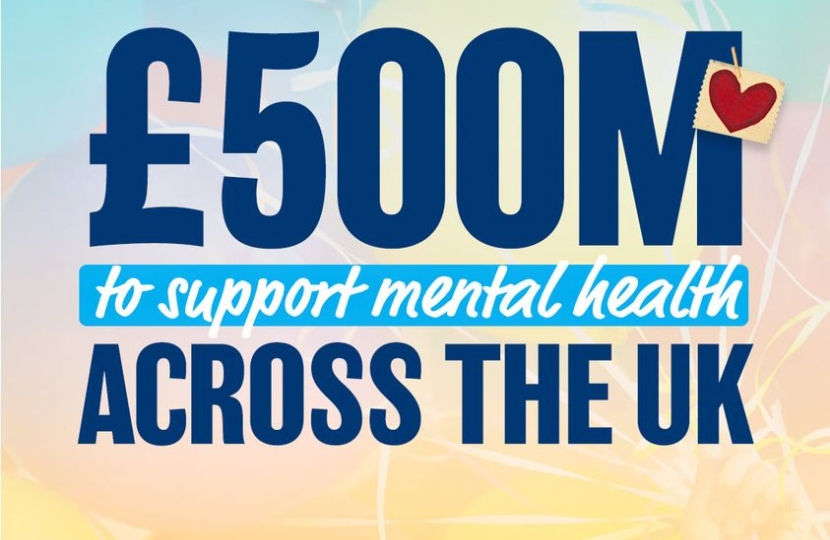
The government has announced it is expanding mental health services, back by £500 million, to ensure everyone is able to access the support they need.
The Mental Health Recovery Action Plan aims to respond to the impact of the pandemic on the mental health of the public, specifically targeting groups that have been most impacted including those with severe mental illness, young people, and frontline staff.
MP for North East Bedfordshire, Richard Fuller, said:
The Mental Health Recovery Action Plan, backed by £500 million of funding, is expanding mental health services to ensure everyone is able to access the support they need.
The government recognises the impact this pandemic has had on wellbeing so the Action Plan includes new, targeted initiatives to help those most affected by the pandemic as well as a boost to existing NHS services, supporting 1.6 million people with their mental health this year. One-off initiatives will also receive funding to tackle the impact of COVID-19 on mental health and learning disability and autism services and to support groups who have disproportionately been affected by the pandemic.
Under the plan NHS talking therapies which offer confidential treatment of conditions such as anxiety, depression and PTSD will expand, supporting 1.6 million people to access services in 2021/22, will receive an additional £38 million. Additional therapists will also be trained to support those with more complex mental health needs as a result of the pandemic.
People living with severe mental illness will also benefit from enhanced mental services in the community, backed by £58 million for better, joined up support between primary and secondary care, including specialist mental health staff embedded in primary care. The funding will accelerate expansion and transformation of community mental health services, enabling people with severe mental illnesses to access psychological therapies, improved physical health care, employment support, personalised and trauma-informed care, medicines management and support for self-harm.
One-off, new initiatives to support mental health recovery from the pandemic include:
- £15 million to help level up mental health and wellbeing across the country through funding initiatives to promote positive mental health in the most deprived local authority areas in England - eligible local authorities will receive around £500,000 each to fund prevention activities like debt advice, carers support, outreach to people facing loneliness and isolation, youth projects and community groups for those most affected by Covid-19 including minority ethnic communities
- £13 million to ensure young adults aged 18 to 25, including university students, are supported with tailored mental health services, helping bridge the gap between children’s and adult services - this funding will ensure services are better able to meet the needs of this group as a result of the pandemic, reducing the likelihood of needing hospital treatment in the future
- £14 million to support the physical health of people living with severe mental illness, through schemes encouraging them to come forward for physical health checks to help spot the signs of conditions like diabetes and heart disease, and get their Covid-19 vaccine
- £17 million to support recovery of the dementia diagnosis rate and tackle the backlog of appointments as a result of the pandemic
- £2.5 million to pilot new approaches to support children who have experienced complex trauma.
- £2.5 million to boost a pilot supporting offenders with significant mental health needs, to divert them away from custodial sentences, and help them to access the support they need through Mental Health Treatment Requirements
- £31 million to support learning disability and autism services, to address the diagnostic backlog as a result of the pandemic, and support intervention to prevent children and young people with learning disability, autism or both escalating into crisis
- £3 million to begin preparations for implementing the Mental Health Act Reform, increasing capacity in the workforce and laying the groundwork for broader reforms including testing ways to improve the quality of care and provide culturally appropriate advocacy
- £5 million to support suicide prevention through voluntary and community sector organisations
If you are in need of support, or if you are concerned about a friend or family member, there is help available: https://www.nhs.uk/oneyou/every-mind-matters/
